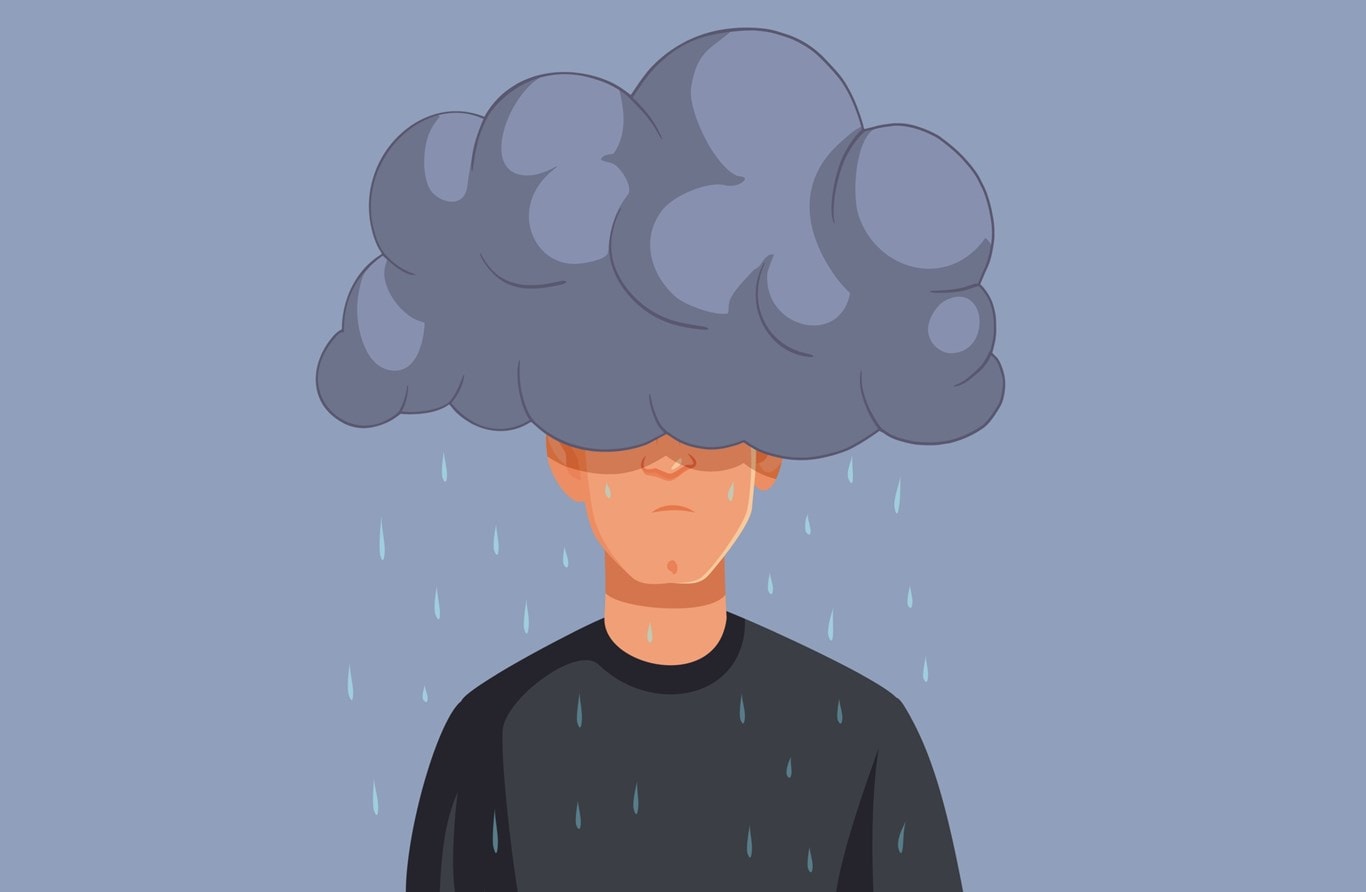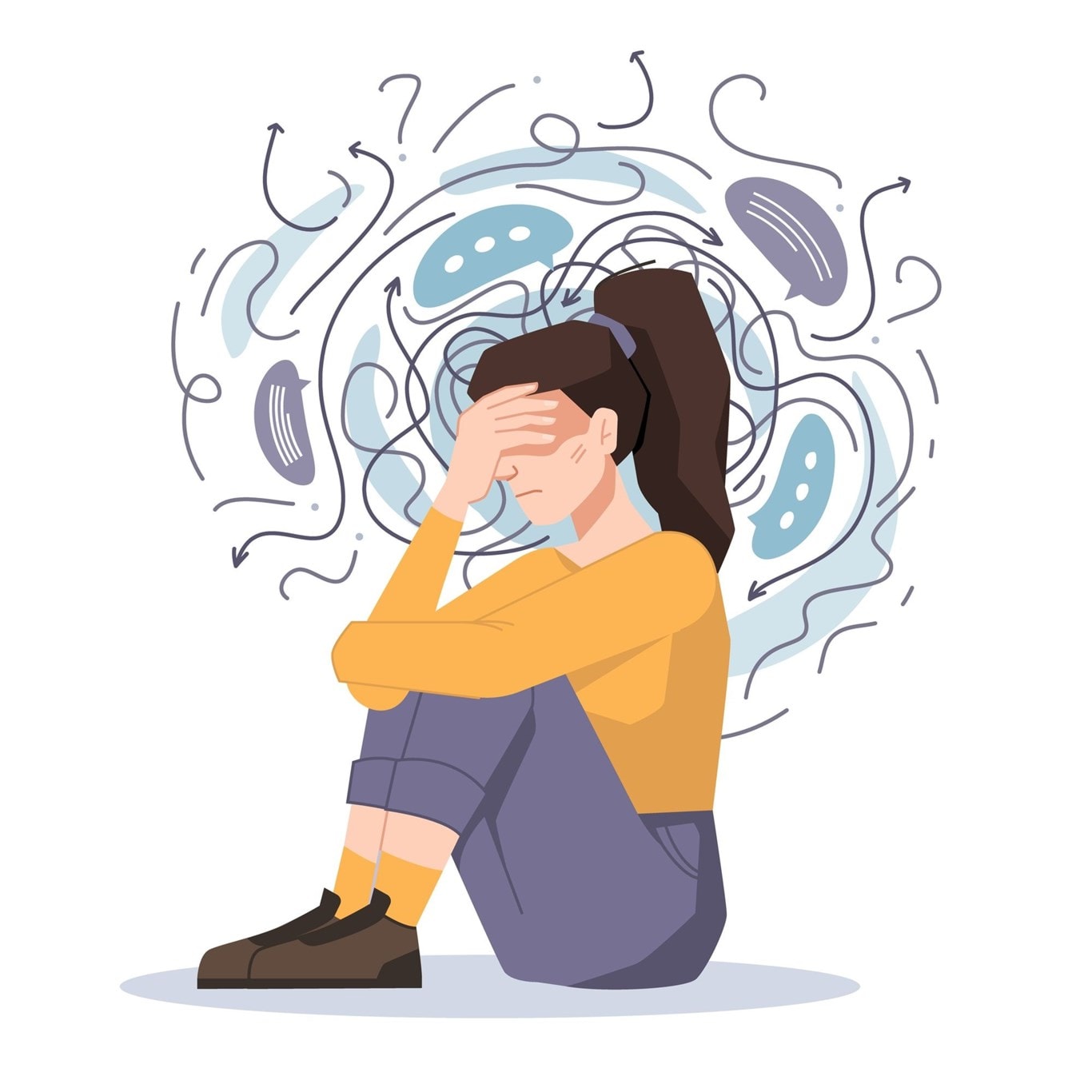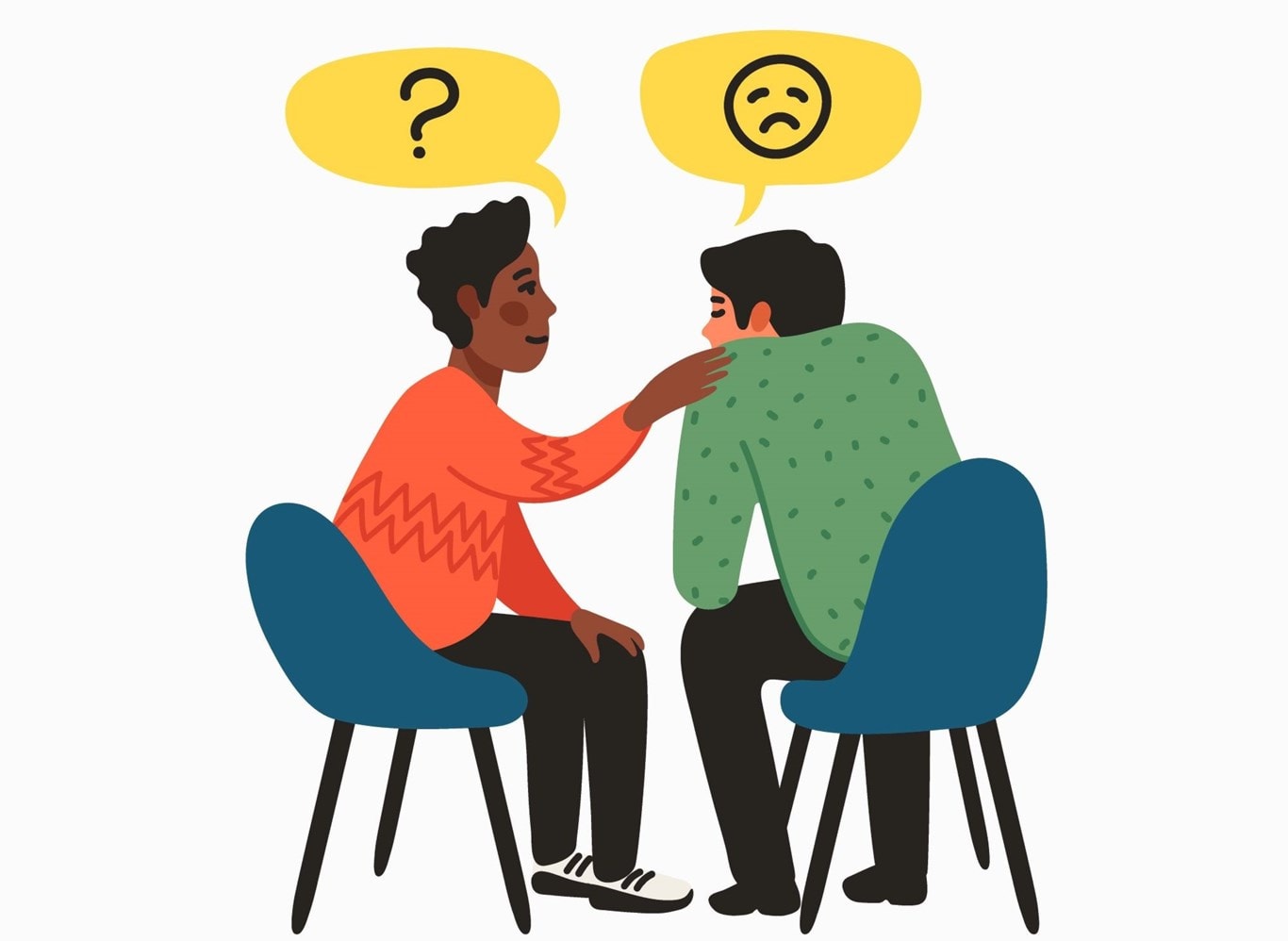
Mental Health
Loss Prevention Bulletin
The World Health Organisation (WHO) has recorded that seafaring as a profession has the second highest rate of suicides, with a significant increase in recent years. A study was conducted in the port of Rotterdam whereby the results showed that seafarers are more likely to suffer from mental health problems.
Emma Forbes-Gearey
(Loss Prevention Officer, West P&I)
Even with the improvements in modern technology that seafarers have access to, there is still a lack of support for those struggling to cope. Digital solutions have been of considerable help, but the true value of talking to a person about their problems should not be underestimated. This is the first step to building a holistic approach to mental health.
Research studies into mental health have shown that there is a link to a person’s circumstances and their environment. Unfortunately, the sea is one of the most challenging environments on the planet and this cannot be changed. The International Seafarers’ Welfare and Assistance Network (ISWAN) have identified other risk factors that can contribute to poor mental health:
- High work pressure.
- Increasingly repetitive and boring tasks.
- Not getting sufficient high-quality sleep and rest.
- Worrying about the consequences of making a mistake.
- Working away from home for long periods of time.
- Pressure of frequent inspections and administrative tasks.

Mental Health Conditions
The WHO explains that mental health conditions can present differently and are characterised as a combination of abnormal perceptions, thoughts, emotions, behaviour and relationships with others.
These mental health conditions can include the following:
- Depression.
- Anxiety.
- Bipolar disorder.
- Schizophrenia.
- Eating disorders.
- Neurodevelopmental disorders, such as Autism Spectrum Disorder (ASD) and Attention Deficit Hyperactivity Disorder (ADHD).
Scientific research papers indicate that officers, particularly those in higher positions, are more likely to experience mental health issues than ratings. This increased likelihood could be attributed to the significant pressure and stress associated with managing the ship, crew, and cargo.
In addition, the data suggests that officers and ratings in the engineering department are more susceptible to mental health difficulties, possibly because of the challenging working conditions in the hot and noisy engine room, technical complexities, and the pressure to maintain and repair machinery. These job requirements and duties, coupled with the physical separation from other crew members, particularly on larger vessels with a more distinct separation between the deck and engineering teams, can lead to physical discomfort, exhaustion, stress, and a sense of loneliness and isolation.
In the section below, we will provide a brief explanation of common mental health conditions:
The impact of depression on an individual's ability to function can be severe, and as a result, it is a leading cause of disability worldwide. In fact, the WHO estimates that depression is the leading cause of disability globally, accounting for nearly 7% of all disability-adjusted life years (DALYs).
The condition is described as someone who is experiencing extreme sadness, loss of interests or pleasures, feelings of guilt, have a low self-worth, disturbed appetite or sleep, tiredness and poor concentration, for most of the day, nearly every day for a period of at least two weeks.
These physiological effects can also come with physical complaints with no apparent physical cause. It can be recurrent or long-lasting and can severely impact someone’s ability to function at work or cope with daily life.
There are various types of anxiety conditions, including Generalised Anxiety Disorder (GAD), panic disorder, Post-Traumatic Stress Disorder (PTSD) and various phobia-related disorders.
Anxiety and stress are often confused, with stress being a response to an immediate threat, while anxiety is a prolonged experience without a clear trigger. However, stress can often lead to anxiety, making it crucial for seafarers to address and manage any negative stress they may encounter.
People who suffer from GAD exhibit extreme anxiety or worry on most days for a minimum period of a least six months. The signs and symptoms of GAD may include, but are not limited to, the following:
- Feel unsettled and fidgety.
- Easily worn out and tired.
- Difficulty concentrating.
- Easily irritated or bad-tempered.
- High blood pressure.
- Constantly worrying and feeling overwhelmed.
- Either sleeping too little or too much with unrestful sleep.
Stress is a common factor associated with psychosis, which can be triggered by physical, environmental, emotional, or chronic stress. Other factors that can cause psychosis include alcohol and drug abuse, traumatic events, acute life events, reactions to prescription medication, or physical conditions such as brain tumours.
Psychosis can cause distortions in thinking, perception, emotions, language, sense of self, and behaviour, including hallucinations, delusions, and disorganised speech or behaviour. Negative symptoms, such as limited speech, emotional apathy, and difficulty experiencing pleasure or cognitive skills, can be equally debilitating.
Short-term treatment may be necessary for individuals who experience isolated psychosis events in their lifetime.
Schizophrenia is a mental health condition where a person experiences prolonged periods of psychosis, requiring long-term treatment. Approximately 24 million people are affected by schizophrenia, and medical advancements have improved recovery rates.
With treatment, 33% of people with schizophrenia can fully recover, and 50% can improve their functioning with minimal relapses.
Suicide
Suicide can be caused by various factors, including mental health conditions, but it is not always the sole cause. While mental health conditions such as depression, anxiety, bipolar disorder, and schizophrenia are known to increase the risk of suicide, other factors such as social and economic factors, substance abuse, and life events can also play a significant role.
The International Association for Suicide Prevention (IASP) statistics showed that over 25% of seafarers suffer from severe depression and almost 6% of deaths at sea were due to suicide. Young crew members are at a higher risk category as suicide is the fourth leading cause of death for individuals aged 15-19 years old, according to the WHO.
Suicide is a complex and serious global health issue that affects people of different backgrounds and ages. However, it can be prevented by implementing evidence-based, timely and low-cost interventions which will be expanded within this bulletin.
Education and awareness campaigns can reduce stigma and promote positive mental health practices, while providing access to mental health care services and addressing underlying social and economic factors can reduce the risk of suicide and improve mental health outcomes.
It is important to seek professional help for a person that is experiencing suicidal thoughts or behaviours.
Mental Health in the Workplace
Like physical health, mental health can change over time. It is therefore important that we recognise our mental health and know that it can fluctuate from feeling mentally healthy to mentally unwell. Early intervention and having a holistic approach to mental wellbeing can prevent critical injury to the individual and those around them. Therefore, having a healthy working environment that is productive to good mental health, lowers stigma, and promotes support is essential.
- Monthly mental health briefings or monthly mental health drills:
- Talk Time:
- Apprenticeship style training:
- Breathing exercises:
- Muscle relaxation exercises:
- Sport facilities:
- Recreational activities:
- Mindful Moments:
Companies could consider making changes that can improve a seafarer’s mental wellbeing such as:
- Consultations with crew members.
- Training for seafarers in identifying and recognising stressful situations.
- Interviews with seafarers regarding post-sick leave when they return to work.
- Looking into staff suggestion surveys.
- Place senior officers on Mental Health Awareness and Wellbeing training courses.
- Length of contract.
- Shift patterns/hours of rest.
- Frequency of port calls.
- Availability of shore leave.
- Crew accommodation.
- Recreational facilities.
- On-board food and catering.
- Communication facilities – this includes internet access.
- Quality of shipboard management.
- “Macho” culture, or where a culture accepts harassment and bullying.
- Crew composition, such as nationalities, ages and genders.
- Provision of communal recreational facilities.
- Organisation of activities that promote interaction amongst crew members.
- Facilitation of pastoral visits to ships from providers of port welfare services.
- Creating mental health organisational policies and procedures.
- Provide information on where the seafarers may be able to receive support whether this is from internal/external counselling services or a telephone advice line like the Sailors’ Society.
Finally, it is important to note that diet can impact both mental and physical health. To improve the wellbeing of their crews, Companies may consider implementing food programs that aim to improve and diversify their diets. Some studies have shown that these programs can yield significant results and are well-received by seafarers. Companies can also tailor onboard meal plans and provisioning to accommodate the cultural and religious backgrounds of their crew members, promoting inclusivity and individual wellbeing.
The Master and senior officers should also:
- Establish prevention and minimisation programs.
- Be able to identify crew suffering from issues.
- Put in place essential support if required – including Masters, officers and senior crew members being trained in mental health first aid.
- Withdrawing and isolating themselves in their cabins.
- Acting out of character.
- Appearing distressed.
- Irritable and agitated.
- Unable to manage their workload.
- Prone to conflicts and aggressive behaviour.
- Trouble concentrating and seem confused.
- Arriving late for shifts.
- Change in appetite.
- There is an immediate danger of harm to an individual or others.
- The individual is contemplating suicide.
- The situation exceeds the expertise of the Master or senior officers.
- The individual has engaged in self-harm, such as bleeding, overdosing, or considering self-injury or harm to others.
- The individual has sustained a self-inflicted injury.
Resilience
Resilience is described as a person’s capacity to change in the face of demanding situations and stressful events whilst retaining a strong mental state. Resilience isn’t a personality trait and can be taught through specific training courses.
Through training, individuals can shift their mindset towards a more positive outlook on life and learn to proactively manage their thoughts to prevent anxiety about uncontrollable aspects of life. Additionally, they can set realistic goals, rise to challenges, and find ways to unwind.
To promote a fair and equitable workplace culture, Companies can provide training on resolving conflicts and asserting oneself.

Support
Seafaring can be an isolating and challenging profession, but there are resources available to support those who are struggling with mental health issues. Various organisations, such as ISWAN and the International Transport Workers’ Federation (ITF), offer free literature online to address the mental health and wellbeing of seafarers. In addition, apps like the Wellness at Sea App provide self-help material that addresses topics like contract issues, abandonment, bullying, and harassment.
Counselling and emotional support services are essential resources that should be available to all seafarers. These services can be a lifeline for seafarers who may be experiencing suicidal thoughts or struggling to cope with life on board. Access to these resources can mean the difference between a seafarer who is able to do their job safely and one who requires a difficult repatriation.
In some countries, port-based welfare services offer face-to-face support to seafarers. Organisations like Stella Maris, Mission to Seafarers, and Sailors’ Society provide free and confidential helplines, such as ISWAN’s SeafarerHelp and Sailors’ Society, which can be accessed via phone, email, or live chat. These helplines are available 24/7 and are staffed by helpline officers who speak a variety of languages, including Filipino, Hindi, and Russian.
The UK Chamber of Shipping has developed guidance to help shipping companies establish mental health awareness policies. This includes providing mental health awareness training for all crew members, which can increase understanding of mental health and reduce the stigma around seeking help. When mental health is no longer considered taboo, seafarers are more likely to feel comfortable discussing their problems with colleagues or supervisors.
Training can also help seafarers recognise signs and symptoms of a crewmate who may be experiencing a mental health crisis, providing them with the skills and confidence to start a conversation. Participants can also learn about the importance of self-care and how to look after their own mental health during a voyage. Finally, training can equip seafarers and senior staff with the skills they need to effectively respond to a crisis on board or within their company.
Members requiring any further guidance are advised to contact the Loss Prevention department.
Emma Forbes-Gearey
Loss Prevention Officer
| T | +44 20 7716 6083 |
|---|---|
| M | +44 7816 528972 |
Emma, who holds an MSc in Sustainable Maritime Operations, worked as a Deck Officer for four years and gained experience on a range of vessels, such as combination carriers, passenger ships, and yachts. In 2019, she joined the Club after transitioning directly from her seagoing career and now attends to Loss Prevention matters.
